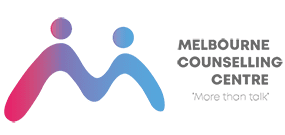What is a self-reflective practice?
If you are exploring self-improvement it’s worthwhile considering implementing a reflective practice. A practice is something that is done consistently over time with the expectations that there will be improvements over time. This process provides you with a way to evaluate important areas of your life in order to help how you improve the way you respond to certain situations.
What Does It Mean To Have A Reflective Practice?
This is a way to study the experiences you have and improve the way you work or function. It is a particularly useful tool when you are committed to your own personal growth and development.
One of the benefits of a reflective practice is that it provides a way for you to learn about you. Diving in deeply to focus on and understand your responses to the world around will fostering your own development and build self-esteem. Incorporating a self-reflective practice into your life helps can assist in making better decisions that increase connection and opportunity, instead of repeating negative behaviour’s that may lead to disappointment or hurt.
Through a self-reflection practice it is possible to see areas in your life that require improvement especially in the domain of interpersonal relationships. For example, if you find yourself becoming defensive in work meetings when someone challenges your ideas, you can reflect on your response, consider your triggers and do some work to resolve this issue. Individuals who regularly complete a reflective practice are more self-aware and build their emotional intelligence. Individuals with a higher emotional IQ are more adept in leadership positions and have healthier and happier relationships.

How To Develop A Reflective Practice?
A Reflective Practice can be developed by looking at and reviewing how you approach daily events from decision-making to collaboration, to your own sense of agency. Learnings that could emerge include,
- Learning how to pay more attention to your needs.
- Recognising the automatic assumptions you may have.
- Understanding your patterns.
- Becoming more aware of how you interpret words and behaviours.
- Noticing and questioning how you see certain situations.
- Observing what you do or don’t do that holds you back.
- Detecting the implicit messages in your words.
- Noting your level of frustration as it arises.
- Becoming attuned to your triggers.
Ultimately, we are constantly learning. Through reflective practice we take our past interactions to learn something new, and then implement the learnings. You could consider this an ongoing upgrade to your own internal software.

The Process
The reflective learning process is beset described as a process whereby you ask yourself questions about a particular situation and how you responded to it. For example, you would need to describe the situation and how it occurred. Then you would consider your response and how it made you feel.
This may also involve exploring how an experience or outcome aligned to your expectations. If it didn’t meet your expectations, how did you respond? Finally, you might consider what behaviours you would explore in the future. You essentially question yourself at each stage of the interaction which enables you to gain insights into your own unconscious behaviours.
The Difference Between Reflection And A Reflective Practice
It is worth understanding the contrast here. The main difference is that a self-reflective practice will be captured or expressed in a type of format. This could be anything from written to spoken and will usually occur on a systematic basis that you become very familiar with over time. Whilst a reflection on an experience might be more fleeting and the insight leaves as quickly as it comes in. A self-reflective practice will help you embed the learnings so you can create more enduring change.
When you include a self-reflective practice in your life you are taking responsibility for your life, your actions, your behaviors and your responses.


